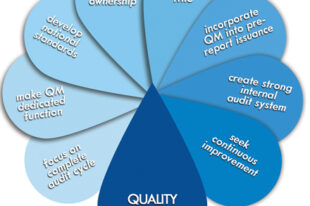
Authors: Bujar Leskaj, Chairman of ALSAI, and Rinald Muça, former Director General of ALSAI
Albania is in a favorable geographic position to serve as a trade hub, tourist destination, and provider of financial and other services. The enhanced use of technology in manufacturing, infrastructure, and communications could give the country a competitive advantage in these fields.
However, Albania is still far from effectively using technology. Over the last several years, the Supreme Audit Institution (SAI) of Albania has conducted performance and information technology (IT) audits of the public sector—whose activity represents about 30 percent of the country’s annual gross domestic product (GDP)—and found that it has paid insufficient attention to technology.
Key institutions, such as the General Directorate of Taxation; National Civil Protection Agency; Institute of Geosciences, Energy, Water, and Environment; and Electronic and Postal Communications Authority (AKEP), lack strategies and action plans for developing and implementing new information technologies. The SAI’s audit on the use of the internet in public administration found a lack of procedures for managing incidents on computer platforms and their networks; inappropriate use of internet traffic; and a lack of controls over users, which increases the risk of data breaches.
There is little use of modern technology in the private sector, which largely consists of agriculture, fishing, trade, transport, hotel and food services, and the construction and FASON (processing industries of textile, garments and footwear manufacturing) industry. Activities that require the use of more advanced technology, such as information and communication processing, financial and security services, and research, comprise only 10 to 12 percent of GDP.
While Albanians make little use of technology for business purposes, they make abundant use of it for entertainment, information, and communication. For example, the number of active users of mobile services in 2018 was about 2.7 million (out of a total population of 2.85 million), generating about 6 billion minutes per year, and this figure continues to increase.
The transition of mobile infrastructure from the 4G to the 5G network represents an opportunity to reorganize the entire economy—not just consumption—around technology. 5G technology promises artificial intelligence, autonomous means of civilian and military transport, smart cities where traffic lights are activated according to traffic, and hospitals where operations are performed by a robot led by a doctor 10,000 km away.
However, such technology brings not only prosperity, but security risks. Based on a performance audit it conducted of AKEP, SAI Albania recommended that:
- AKEP conduct a preliminary analysis of the impact that implementation of 5G technology would have on the country. Implementation must be carried out based on a clear and comprehensive national action plan, to protect against security risks.
- The government establish a National Committee for the evaluation of strategic investments in Albania, including investments in 5G technology. This committee should include experts not only in economics but also in security, IT, and defense. For this purpose, a special legal basis must be approved by the Parliament. The tasks of this Committee should include assessing whether:
- 5G technology providers are subject to control by a foreign government, without an independent judicial process;
- Network suppliers and service providers are funded in a transparent manner, using best practices in procurement, investment, and contracting;
- Service providers have transparent ownership, partnerships, and corporate governance structures;
- Providers are innovative and respect law enforcement and intellectual property rights;
- Providers and network technologies create a secure environment, independent of government influence, and comply with industry standards.
The Chairman and Director General of SAI Albania presented the audit’s findings and recommendations at the Summit on Cyber Security organized by the U.S. Senate on 03.02.2020.






